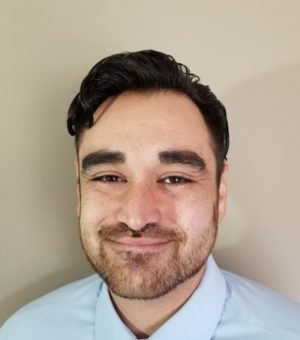
Apply Now to Join Reducing Housing Barriers to Jail Diversion Community of Practice
The Council of State Governments (CSG) Justice Center is hosting a three-session virtual community of practice (CoP) to explore how communities can better divert people from jail into stable housing and services. It will highlight emerging strategies and best practices, feature communities undertaking this work to share lessons they have learned, and include opportunities for participants to discuss common challenges. Participants will also be introduced to the Zero Returns to Homelessness framework and learn how to apply it during diversion to connect people to housing.
Upon completion of the Reducing Housing Barriers to Jail Diversion CoP, participants will have (1) a better understanding of the evidence-based housing models they can leverage when considering diversion programs, (2) awareness of different emerging best practices being used by communities across the country, and (3) an implementation plan centered around the Zero Returns to Homelessness initiative that they apply in their own communities. Participants will also have an opportunity to connect with peers to solve common challenges and barriers faced in the field.
This CoP will be led by CSG Justice Center policy staff with support from the Bureau of Justice Assistance, which is a component of the Department of Justice’s Office of Justice Programs, as part of the Justice and Mental Health Collaboration Program.
Session dates for the CoP will take place from 2:00—3:30 p.m. ET via Zoom web meeting and will be held on the following dates:
- July 31, 2024
- August 28, 2024
- September 25, 2024
Teams interested in participating should submit the below application by Monday, July 22, 2024. A CSG Justice Center staff member will follow up with applicants by Thursday, July 25, 2024.
If you have any questions, contact Joey Hayashi at jhayashi@csg.org.
This application should take approximately 10 minutes to complete.
Who should apply?
This CoP is intended for collaborative teams consisting of leaders from the justice and housing/homeless assistance systems at the local, municipal, county, regional or Tribal level. These teams don’t need to be formalized, pre-existing collaborations. However, members must demonstrate a history of collaborative, cross-systems efforts to assess housing needs for people with behavioral health conditions in the justice system.
Who should participate?
Teams must be composed of two core members: one person each from the justice and housing/homeless service sectors. These members do not need to be senior leaders, but they should be people with decision-making authority. Examples include sheriff’s department managers or supervisors, police department command staff or homeless outreach team leaders, public housing authority directors, and Continuum of Care lead agency senior staff. Up to three additional team members are allowed to be on the team, representing behavioral health and social service partners; funding agencies; elected officials; people within the justice, homeless assistance, or behavioral health care systems; or other key partners.
What will the sessions cover?
Session 1 will introduce key evidence-based diversion models that can be used to support people with behavioral health needs. It is designed to help participants gain a foundational understanding of the housing principles that inform the Housing First approach and break the cycle of incarceration and homelessness. Participants will be introduced to the Zero Returns to Homelessness initiative and learn how they can use it to support diversion efforts. Lastly, participants will have the opportunity to hear from one community about their efforts to divert people from jail into housing.
Session 2 will introduce participants to diversion opportunities that can occur before people ever come into contact with the courts through community-led and law enforcement efforts. Participants will have the opportunity to discuss their experiences engaging in these kinds of efforts previously and learn how they can practically apply the Zero Returns to Homelessness initiative to support these efforts in the future. Finally, participants will hear from a panel of Law Enforcement-Mental Health Learning Sites to learn about their work through homeless outreach teams to connect people to housing.
Session 3 will explore the role that courts, such as specialty courts, can play in facilitating diversion from jail. Participants will have a chance to discuss intervention models–such as Intensive Case Management–available through the courts system and their coordination with services. During this session, participants will join group discussions and engage with two guest communities to build up group knowledge and increase their understanding of court-based diversion.
Project Contact

The sharp rise in school shootings over the past 25 years has led school officials across the U.S.…
Read MoreA three-digit crisis line, 988, launched two years ago to supplement—not necessarily replace—911. Calling 988 simplifies access to…
Read MoreIt would hardly be controversial to expect an ambulance to arrive if someone called 911 for a physical…
Read More Taking the HEAT Out of Campus Crises: A Proactive Approach to College Safety
Taking the HEAT Out of Campus Crises: A Proactive Approach to College Safety
The sharp rise in school shootings over the past 25 years has led school officials across the U.S. to take a closer look at ways to keep students safe. For Chaffey College in Rancho Cucamonga, California, a tragic incident at a nearby university hit close to home and spurred campus leaders to revisit their own school’s threat assessments and crisis responses.
Read More From 911 to 988: Salt Lake City’s Innovative Dispatch Diversion Program Gives More Crisis Options
From 911 to 988: Salt Lake City’s Innovative Dispatch Diversion Program Gives More Crisis Options
A three-digit crisis line, 988, launched two years ago to supplement—not necessarily replace—911. Calling 988 simplifies access to services when people are seeking help for themselves or loved ones with suicidal thoughts, behavioral health concerns, or substance use-related crises.
Read More Matching Care to Need: 5 Facts on How to Improve Behavioral Health Crisis Response
Matching Care to Need: 5 Facts on How to Improve Behavioral Health Crisis Response
It would hardly be controversial to expect an ambulance to arrive if someone called 911 for a physical health emergency. And yet, for years, the default responders for a behavioral health emergency have been law enforcement officers, not behavioral health professionals.
Read More









